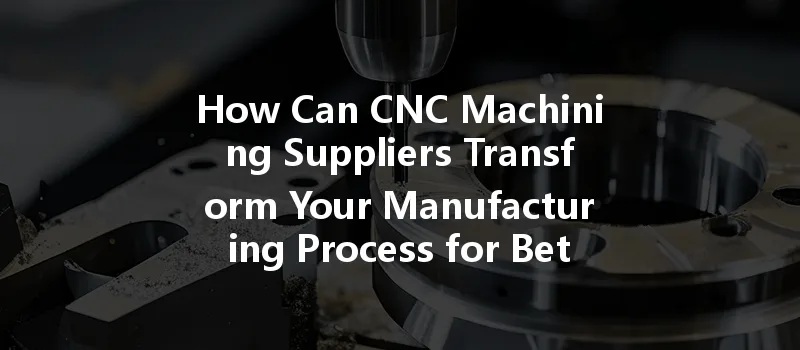: The Art and Science of Precision
At the heart of modern manufacturing lies a remarkable transformation—one that speaks to the spirit of innovation and pushes the boundaries of what’s possible. As industries evolve, the quest for efficiency, quality, and precision has never been more critical. Welcome to the world of CNC machining, a pivotal force steering the ship of modern production. Here at YL Machining, we hold the key to unlocking unparalleled capabilities through our advanced CNC machining services.
In this comprehensive article, we will dive deep into the intricate universe of CNC machining. We will explore its myriad applications, its advantages, the intricacies of the process, and why it is the go-to solution for businesses striving for excellence. If you’re in search of a partner that champions quality and precision, your journey ends here.
What is CNC Machining?
CNC, or Computer Numerical Control machining, is a manufacturing process that utilizes computerized systems to control machine tools. These can range from lathes, mills, and routers to 3D printers. By interpreting computer-aided design (CAD) data, CNC machines operate with exceptional accuracy and repeatability, transforming raw materials into intricate parts or products.
The YL Machining Advantage: Quality You Can Trust
At YL Machining, we understand that precision is not merely a requirement; it is the very foundation upon which success is built. Our commitment to quality encompasses every aspect of our services:
Applications of CNC Machining
CNC machining is incredibly versatile, finding applications across diverse industries. Here’s a look at some of its most significant uses:
Precision is paramount in aerospace manufacturing, where components must endure extreme conditions. CNC machining provides the accuracy needed to create flight-critical components, from engine parts to landing gear assemblies.
The automotive sector relies heavily on CNC machining for producing parts that enhance performance and safety. From prototypes to production runs of engine components, CNC machining ensures consistency and quality.
In the realm of healthcare, CNC machining is employed to manufacture intricate parts for medical devices and instruments. With compliance to stringent regulatory standards, precision is essential in ensuring patient safety.
From circuit boards to intricate housings, the electronics industry leverages CNC machining to create precision parts that drive innovation. The ability to produce complex geometries with tight tolerances is a game-changer.
Advantages of CNC Machining
As industries continue to seek efficient techniques, CNC machining stands out for numerous reasons:
The CNC Machining Process: From Design to Completion
Understanding how CNC machining works can help you make the most out of your manufacturing needs:

The journey begins with computer-aided design (CAD). Designers create a digital blueprint of the desired part, specifying dimensions, materials, and tolerances.
The CAD files are then converted to computer-aided manufacturing (CAM) code. This code instructs the CNC machine on how to produce the part, determining the tool paths and machining parameters.
Choosing the right material is critical. Whether it’s metals, plastics, or composites, YL Machining ensures that the best materials are selected based on the application requirements.
During this phase, the CNC machine takes over. In automated precision, the machine carves or shapes the material according to the specifications set out in the CAM program. The process can involve milling, turning, drilling, or a combination of techniques.
Post-machining, every component undergoes rigorous quality control checks. Advanced measuring tools and inspection techniques validate that the parts meet all specifications before reaching the customer.
Depending on the requirement, finishing operations such as polishing, anodizing, or coating may be applied to enhance the part’s durability and aesthetics.
FAQs About CNC Machining
To better understand CNC machining and its benefits, here are some frequently asked questions:
Q: What materials can be machined using CNC technology?
A: CNC machining can handle a wide range of materials including metals like aluminum, steel, titanium, brass, as well as plastics and composites.
Q: How does CNC machining reduce production costs?
A: By minimizing waste, increasing production speed, and improving accuracy, CNC machining optimizes the manufacturing process to lower overall costs.
Q: Can CNC machining be used for low-volume production?
A: Yes! CNC machining is ideal for both low and high-volume productions. Its flexibility allows for custom projects, prototypes, and mass production with ease.
The Future of CNC Machining: Innovations on the Horizon
The landscape of CNC machining is evolving at an astonishing pace. Advances in technology and materials are pushing the boundaries of what can be achieved. As we look to the future, several trends are poised to redefine the industry:
: Your Partner in Precision—YL Machining
At YL Machining, we are passionate about harnessing the power of CNC machining to help businesses achieve their manufacturing goals. Our commitment to quality, our state-of-the-art technology, and our customer-centric approach make us the ideal partner for all your machining needs. Whether you are a start-up looking for prototypes or an established company seeking high-volume production, we are here to help you every step of the way.
As you embark on your journey toward precision and quality in manufacturing, remember: with YL Machining, you’re not just choosing a service; you’re choosing a partner dedicated to your success. Let us join you in shaping the future of your industry, one precise part at a time.




